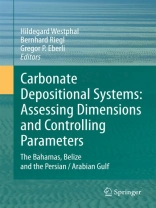Carbonate sediments are of increasing relevance for archives of past environmental conditions and for economical reasons in areas of geothermal energy and hydrocarbon reservoirs. Complex interaction of physical and chemical parameters with biological parameters determines the architecture and composition of carbonate sedimentary bodies. This book closes some of the still existing gaps in our understanding of the influence and interplay of physical, chemical, and biological parameters with carbonate sedimentation. An understanding of this interaction is not only required for reliable prediction of reservoir quality but also for a robust interpretation of environmental conditions in the past and the present. It is written by geologists for geologists in order to provide an easily accessible overview of the large amount of relevant information provided by the neighbouring sciences. The approach of the book is to document the modern depositional environments of three classical areas of carbonate deposition, each characteristic for a specific sedimentological setting (isolated platform, attached shelf, ramp) in order to assess both the range of physical, biological and chemical parameters and their sedimentary response. This book presents a comprehensive compilation based on data from published work and unpublished theses, and the integration of these data in order to extract previously undiscovered relationships between the discussed parameters and carbonate deposition.
Table des matières
Parameters Controlling Modern Carbonate Depositional Environments: Approach.- Controlling Parameters on Facies Geometries of the Bahamas, an Isolated Carbonate Platform Environment.- Belize: A Modern Example of a Mixed Carbonate-Siliciclastic Shelf.- The Gulf: Facies Belts, Physical, Chemical, and Biological Parameters of Sedimentation on a Carbonate Ramp.- Summary: The Depositional Systems of the Bahamas, Belize Lagoon and The Gulf Compared.











